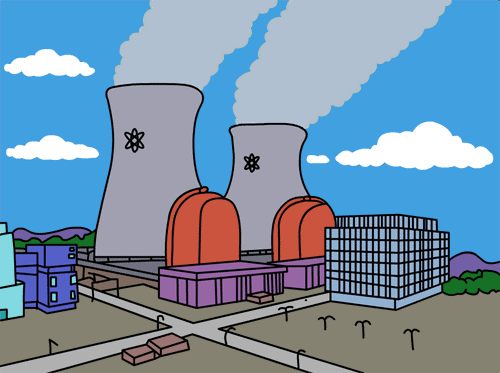Don’t look now. But the ban on nuclear power in West Virginia is about to go up in smoke.
It’s going to be repealed with the help of so-called progressives in the state legislature.
And it’s going to be repealed with the West Virginia environmental groups, for the most part, sitting on the sidelines.
Two of the most progressive members of the House of Delegates – Evan Hansen (D-Monongalia) and Kayla Young (D-Kanawha) – are in favor of repeal.
And three major environmental groups – the West Virginia Environmental Council, the Ohio River Valley Institute and the West Virginia Rivers Coalition – are not taking a position on the repeal.
Only two groups – Sierra Club and the West Virginia Citizen Action Group – are on the record opposed to repeal.
The Senate version of the bill, S. 4, passed the Senate this week by a vote of 27 to 7. Senator Bob Beach, one of the seven opposed, referred to the handful of states without nuclear power and said – “I would like West Virginia to continue to be one of those safe states.”
The House of Delegates has scheduled a hearing on the legislation for Friday.
Gary Zuckett of the West Virginia Citizen Action Group urged Young and Hansen and other members of the House to reconsider their support for repeal.
“We lobbied for this law in 1996,” Zuckett said. “There has never been a commercial nuclear facility in West Virginia. The situation with nuclear hasn’t changed significantly since those bills were passed in 1996. We still have fundamental issues on how to dispose of radioactive waste.”
Delegate Barbara Fleischauer (D-Monongalia) is one of the few members of the House of Delegates who is opposed to the repeal.
“One of the things that concerns me are the nuclear accidents that we’ve had,” Fleischauer said. “I don’t see a reason to lift this ban right now when we have not solved the nuclear waste problem. I don’t see why we would do this without studying it in depth.”
The nuclear power issue has split environmental groups in West Virginia and across the country. Many have been convinced that new advanced nuclear power plants are safer and more economical than the older generation.
But a study from the Union of Concerned Scientists released last year found the opposite – that the new reactor designs are no better than current reactors – and some are worse.
“As a Republican and fiscal conservative, cost is a key issue,” said Sierra Club’s James Kotcon. “We should be looking at the cleanest, fastest, cheapest and safest way to reduce greenhouse gases. And nuclear is none of those. It has never come in under budget. We should expect significant cost overruns. When the costs of renewable energy technologies are coming down, nuclear costs are going up.”
Kotcon pointed out that nuclear power has corporate welfare baked into its business model.
“The federal government has assumed responsibility for all waste disposal,” Kotcon said. “And the federal government limits nuclear power’s liability. With nukes, we the taxpayers are paying for it.”

